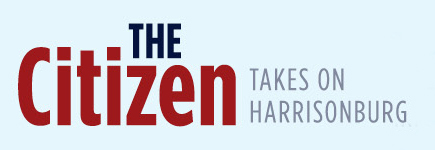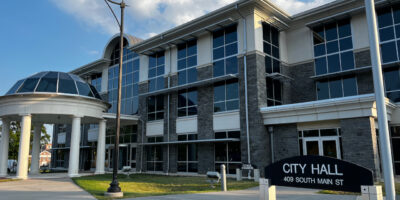By Randi B. Hagi, assistant editor
Instead of requiring students to attend school a couple days a week this fall, the latest plan for the Harrisonburg City Public Schools will be to require most students to learn from home virtually five days a week, as a result of the discussion during Tuesday’s school board work session.
Superintendent Michael Richards asked for the board’s input in response to public health data and a number of recently published studies that “concerned” him, including D.C., Maryland, and Virginia recording over 1,600 new COVID-19 cases in a 24 hour period last week; and a study of about 65,000 participants in South Korea that found older children spread the virus as much as adults.
The move to online learning will be required for most students but will allow exceptions for in-person teaching at the schools for certain students, such as students whose primary language isn’t English or students with special needs. Tuesday’s decision is a major shift from the return to schools plan the board adopted unanimously earlier this month.
The current plan is to implement this mostly-distanced option for the first semester of the 2020-21 academic year, and evaluate how to proceed for the spring semester.
School board member Deb Fitzgerald, who also serves on the return to schools task force, noted that the plan was always built with the ability to “pivot” based on how the COVID-19 pandemic develops. She likened it to a flight plan.
“This is the captain saying we’re not ready to unbuckle the seatbelt yet,” Fitzgerald said.
And more changes could come before school starts on August 31.
The board discussed a variety of options, including moving only high schoolers to distance learning instead of having most attend two days a week (either Monday and Thursday or Tuesday and Friday). Another approach discussed was moving to virtual learning for all city students.
After taking a straw poll of board members, Richards announced that the preferred approach would be for the division to offer in-person learning four days a week for the coming semester for “identified students” only. They would include English language learners and those with an Individualized Education Program for special education services – if school staff and parents agree that it’s better for that child to be in school rather than out. With any “identified student,” a parent or guardian can still choose to keep the child home for total distance learning.
School board member Obie Hill said that working parents who cannot afford childcare are “at the forefront of my mind right now.”
“We have so many parents who work,” Hill said. “I can’t imagine the place they would be in if they cannot find daycare.”
Richards said he was still working with various “community partners” to come up with affordable childcare solutions for Harrisonburg families.
And if those plans fell through, he said the board could alter the return-to-schools plan again. He noted the need to balance “the risks of having people in and the risks of having people out.”
Concerned teachers and families
Richards also said staff who are medically vulnerable or care for a vulnerable person in their home could work from home, and even those who are not considered high-risk in relation to COVID-19 might still be able to opt-out of in-person instruction.
“We think that’s important to give our staff the ability to say… I’m scared to do this,” Richards said.
And while he said that they couldn’t guarantee the option to work remotely for every staff member who prefers to, “we plan to honor those.”
“There is a huge amount of resistance among teachers of all ages to premature returning to face-to-face instruction,” said Andy Kohen, the board chairman.
Kathleen Holter, who teaches third grade at Stone Spring Elementary and served on the return-to-schools task force, was also present at the meeting to represent teachers’ interests. Holter said she believes “it’s not physically safe to return to the classrooms this fall.”
“It breaks my heart,” she said.
Holter said she appreciated that teachers will get three weeks of training to adapt to a distanced or hybrid model of instruction.
“Please support the 100% virtual learning until it is safe to return to our buildings and classrooms,” Holter asked the board.
About a dozen local residents wrote in with public comments, asking questions about staff getting paid if they need to quarantine, whether a whole class would be quarantined if one child tests positive for the virus, and how students with immigrant parents will be able to get help with at-home learning. Richards told The Citizen after the meeting that a “frequently asked questions” page will be added to the division’s website later this week responding to many of these comments and others they have received, including some from the previous meetings.
Journalism is changing, and that’s why The Citizen is here. We’re independent. We’re local. We pay our contributors, and the money you give goes directly to the reporting. No overhead. No printing costs. Just facts, stories and context. Thanks for your support.









